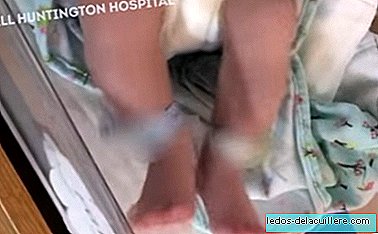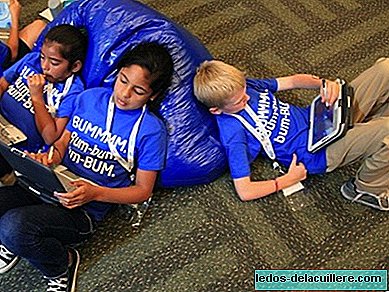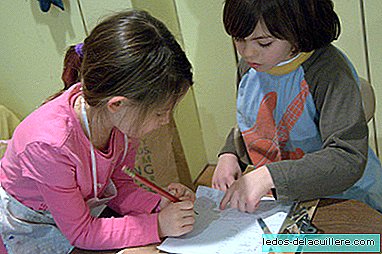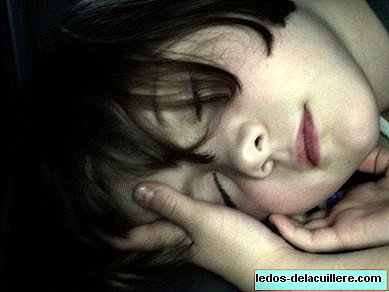As every year, the Vaccine Advisory Committee of the Spanish Association of Pediatrics published the calendar of vaccines they recommend for the new year. This calendar is a vaccination recommendation in childhood and adolescence, which does not imply that it is mandatory, but that does represent the guide on which they should be based to standardize the different vaccine schedules of each community, and finally reach the long-awaited unique calendar that governs throughout the Spanish territory.
Below we explain the changes they propose with respect to the recommended calendar for the past year, always taking into account the available evidence on the effectiveness and efficiency of vaccines, as well as the epidemiology of immunopreventable diseases in our country.
Vaccines recommended by the AEP for 2019
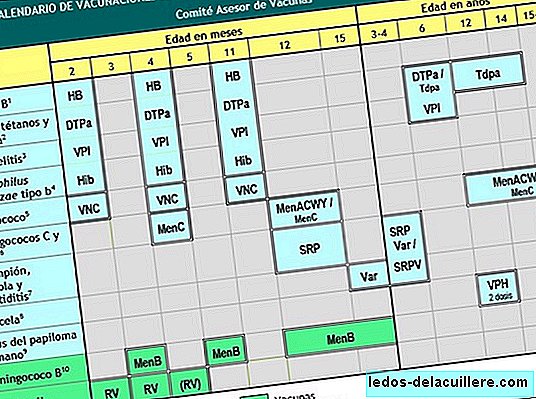
Vaccines funded:
We start with vaccines financed by the health system, which are the ones we see in blue on the calendar.
- The vaccination schedule of the hexavalent vaccine against Hepatitis B, diphtheria, tetanus and pertussis, poliomyelitis and influenza type B. The first two doses are recommended at two and four months respectively and the third dose is ahead of 11 months, previously recommended at 12 months.
For the polio vaccine, a booster at 6 years is recommended, while for diphtheria, tetanus and pertussis, a booster at 6 years and at 12-14 years.
Refering to meningococcal vaccine, the recommendation of the first dose against Meningitis C is maintained with four months and the second is advanced at 12 months (last year recommended between 12 and 15 months). One of the changes in this year's vaccination schedule is that for this second dose, and for the third in adolescence, the tetravalent vaccine is recommended, which also protects against the types of AWeY meningitis, as Castilla y León has already incorporated, the only community that includes it in its calendar.
The triple viral vaccine, against measles, rubella and mumps, the recommendation is maintained with two doses, at 12 months and recommending the tetraviral vaccine (SRPV) for the second dose at 3-4 years.
 In Babies and more From A to Z: All childhood vaccines from 0 to 14 years old
In Babies and more From A to Z: All childhood vaccines from 0 to 14 years oldTwo doses of the chickenpox vaccine are recommended, at 15 months (it is also acceptable at 12 months of age), and the second dose at 3-4 years of age, recommending it as a tetraviral vaccine.
The human papilloma vaccine is recommended two doses at 12 years (with an interval of up to 6 months), both for boys and girls. Currently it is only funded in girls, but not for boys despite the recommendations of the experts.
Vaccines not funded:

Finally, there are two vaccines that are not funded by the public safety system, which the AEP recommends administering and we can see in green on the calendar:
Meningitis B vaccine: the meningococcal B vaccine (Bexsero that is administered after two months and Trumenba after 10 years) is recommended to be introduced systematically in the infant at 3 months, at 5 months and a third dose between 12 and 15 months.
Rotavirus Vaccine: It is also recommended the introduction of the rotavirus vaccine in infants in a systematic calendar, which is the virus that most commonly causes moderate or severe acute gastroenteritis in children. It is recommended start vaccination between 6 and 12 weeks of age, either with the Rotarix vaccine that is given in two doses (at 2 and 4 months) or with the Rotateq vaccine, which is given in three doses (at 2.4 and 6 months).
 In Babies and more Single schedule of vaccines for 2019, from zero to more than 65 years: includes pregnant women and risk groups
In Babies and more Single schedule of vaccines for 2019, from zero to more than 65 years: includes pregnant women and risk groups



